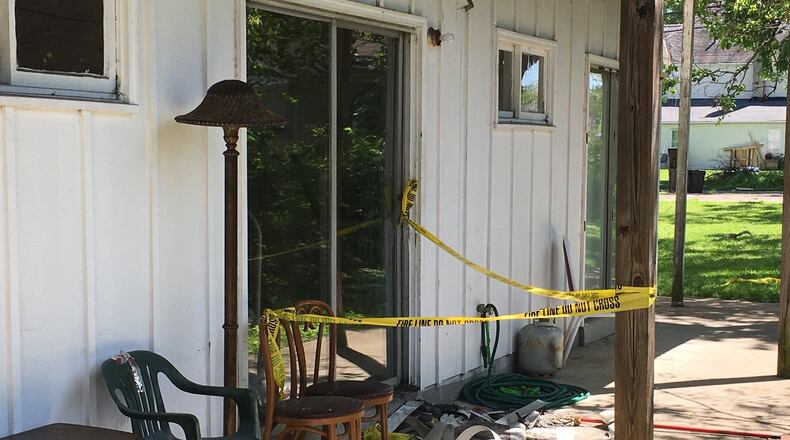FIRST REPORT: Smoke alarms not working in fatal Middletown kitchen fire
Firefighters discovered Phelps in his bedroom and removed him to the yard where medical care was started before he was transported to Atrium Medical Center, where he died from his injuries, according to investigators. Spaulding said the fire started on the stove.
Spaulding said there was no indication Phelps was “aware” of the fire because he never responded. He was alone in his apartment, Spaulding said.
The man who owns the apartment complex said Phelps had lived there for two years.
An autopsy was performed Monday by the Warren County Coroner’s Office and the manner and cause of Phelps’ death are pending, officials said
There were smoke detectors in the Middletown apartment, but they were inoperable due to batteries missing or being disconnected, officials said.
RELATED: Free smoke detectors for eligible Middletown residents
Had the detectors worked, Phelps or neighbors may have been alerted to the fire, Spaulding fire.
“The outcome may have been different,” he said.
— — —
SMOKE DETECTOR TIPS
- Place a smoke alarm on every level of your home and outside sleeping areas. If you keep bedroom doors shut, place a smoke alarm in each bedroom.
- Smoke alarms should be tested monthly and batteries replaced yearly, or as soon as you hear a low-battery warning which usually sounds like a "chirping" noise.
- Teach children what the smoke alarm sounds like and what to do when they hear it.
- Keep smoke alarms clean by vacuuming over and around it regularly. Dust and debris can interfere with its operation.
- Install smoke alarms away from windows, doors, or ducts that can interfere with their operation.
- Never remove the battery from or disable a smoke alarm. If your smoke alarm is sounding "nuisance alarms," try locating it further from kitchens or bathrooms.
- Plan regular fire drills to practice your escape plan ensuring everyone in your home knows exactly what to do when the smoke alarm sounds.
- Smoke alarms wear out. Replace your alarms every 10 years. If you can't remember when you last replaced them, buy new alarms that are interconnected if possible.
- Install them using manufacturer's instructions and hire an electrician for installing alarms that are hard-wired into your home's electrical system.
SOURCE: U.S. Fire Administration
— — —
An estimated 890 lives could be saved each year if all homes had working smoke alarms, according to the American Red Cross. The fire death rate in homes with working smoke alarms is 51 percent less than the rate for homes without this protection, the red cross said.
Sprinklers and smoke alarms together cut your risk of dying in a home fire 82 percent in relation to having neither, according to the U.S. Fire Administration.
Firefighters kept the fire contained to the kitchen and damage was estimated at $25,000.
About the Author

